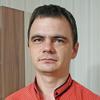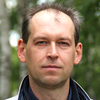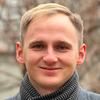Up to 7 Years in Penal Colony — 10 of Jehovah’s Witnesses in Voronezh Convicted for Their Faith in God
Voronezh RegionOn November 21, 2025, the Levoberezhnyy District Court of Voronezh issued the region's first verdict against Jehovah's Witnesses on charges of extremism — one of the harshest sentences this year. Yevgeniy Sokolov was given 7 years in a penal colony; Sergey Baev and Igor Popov were given a 6-year suspended sentence and the others — 6 years in a penal colony.
Judge Yevgeniya Laskavaya's decision concluded an almost 4-year trial. The convicted men are aged 29 to 61. Many have higher or vocational education: engineers, electromechanics, philologists, welders, and blacksmiths.
The investigation against the believers lasted more than 5 years. Its first landmark event was a raid by law enforcement officers on July 13, 2020. That day, more than 110 searches took place in the region — a record number in the recent history of the prosecution of Jehovah's Witnesses in Russia. The believers ended up in pretrial detention for nearly 5 months. Several were subjected to cruel treatment — including Anatoliy Yagupov and Yuriy Galka. The latter had his arms twisted behind his back and a bag placed over his head until he suffocated; he was also beaten, resulting in a broken rib.
"It feels like no one hears us when we say we are simply practicing our religion as we always have," Yevgeniy Sokolov commented shortly before the verdict. "We are just believers and are living according to the Bible. The persecutors clearly have their own agenda and keep pushing it." Valeriy Gurskiy expressed a similar thought in his final statement: "The case contains a huge amount of material, dozens of volumes. The volumes could have been doubled... but the result would be the same: there is nothing we should be charged with." Yuriy Galka spoke about the investigation period: "I was fully aware of the surveillance. Then and now, I am confident I was not breaking any laws of the Russian Federation, so I never ran away. I prefer to be with my fellow believers in difficult times."
Despite the criminal prosecution, the defendants noticed empathy and goodwill from those around them. Anatoliy Yagupov thanked the judge for paying attention to the defendants' health: "You were understanding when one of us couldn't attend court due to illness and even arranged a chair in the courtroom for my fellow believer so he could be more comfortable after leaving the hospital." Mikhail Veselov spoke about the support from his neighbors: "They sincerely worried about me when I was in pretrial detention. And when I returned home, they greeted me joyfully and said, 'Don't leave us again.'" Yevgeniy Sokolov noted the investigator's respectful attitude: "He emphasized that we have a good reputation... said he had spoken with other investigators, and all of them noted that we are people from whom one would never expect any malice. And he admitted quite openly: 'I see that it is true.'"
Large-scale trials against Jehovah's Witnesses are not isolated incidents. In various regions of Russia, law enforcement agencies have initiated cases against entire groups of believers — from 8 to 18 people at a time.










